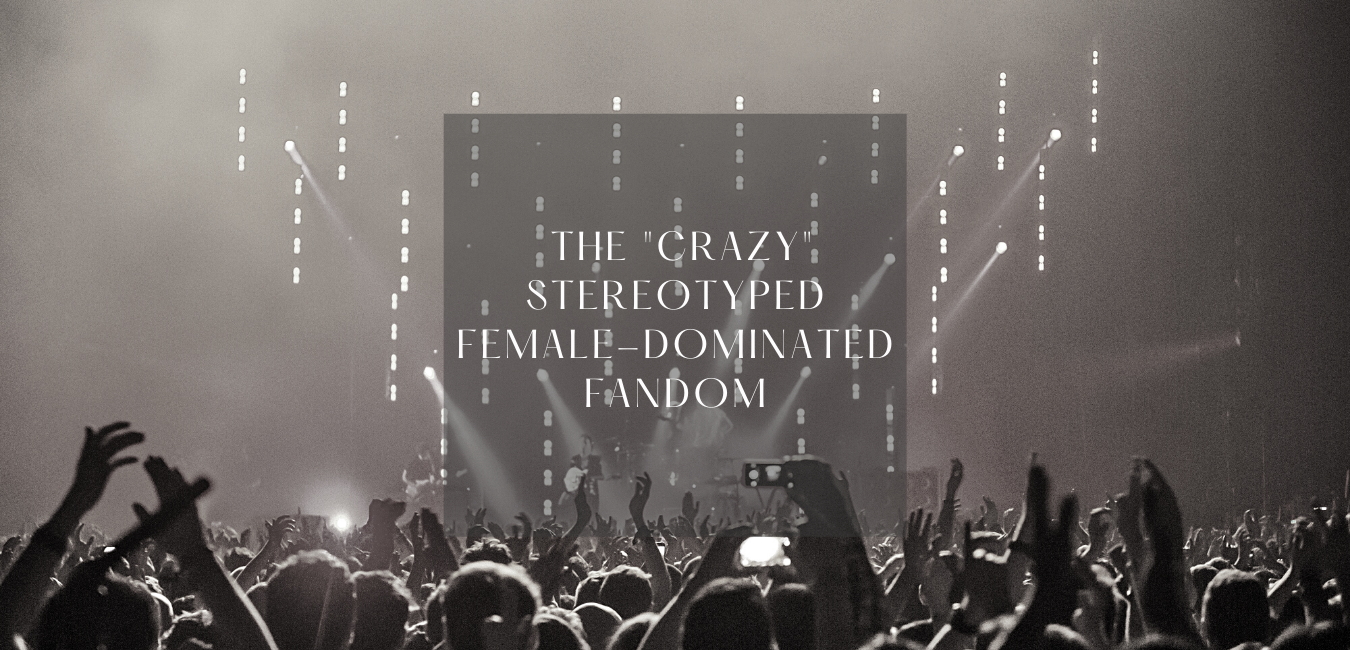The community that is centered around a band, sports team, TV show, book, etc., is known as fandom. People in a fandom share a common interest to discuss, consume, express their enjoyment and get along with each other. Each fandom has its own culture, rules, and inside jokes to facilitate community engagement involving the subject they're interested in (Sesek & Pusnik, 2014). Although the general meaning of fandom has nothing to do with gender, female-dominated fandom and female counterparts in male-dominated fandom are often dismissed and invalidated.
The term "fangirl" often comes off as derogatory. When used as a verb, it can apply to both men or women who express their interest and enjoyment in a hysterical way. If we type out "are fangirl…" on Google search, suggestions such as "annoying," "weird," etc., will appear. It has become an insult due to the stereotyped overzealous and irrational characteristics of female fans' behavior. On the other hand, being in a sports team fandom which is largely dominated by men is pretty much considered normal by society. Supporting a sports team is never considered strange or abnormal. Sports fandom is an example of a normalized and unashamed fandom (Dixon, 2013). Reaction to wins or losses, celebration or mourning, often becomes overwhelming, whether it's dancing in the streets or even fighting.
For instance, in the Euro Cup 2021 finals that ended earlier this year, England lost to Italy. There were football fans violently attacking each country's supporters, racially motivated abuse online and offline, as well as vandalization on the streets. However, sports fans in general, which mainly consisted of men, never get the same treatment as female-majority fandoms do for their hysterical behavior. The same yelling and enthusiasm they let out that are paralleled at any boy band concert never result in them being punished/ashamed for their fandom involvement even though the only thing that differs is the pitch of their voices (Borer, 2009). Male sports fans are often described as "crazy" with a fun and amusing connotation. Meanwhile, fangirls would get booed for lining up to get collaborative merchandise from a huge brand with their favorite artists, without violence at all.
When the South Korean boy group BTS attended the Sustainable Development Goals Moment at the 76th United Nations General Assembly earlier this year, TV Host James Corden made a remark which later received backlash. He said, "It actually marks the first time that 15-year-old girls everywhere found themselves wishing that they were Secretary General António Guterres." This is just an example of how society views and underestimates fangirls as narrow-minded people who know nothing about bigger issues in the world.
The stereotype is also not something recent. "Beatlemania," which people used to call The Beatles' fan club, experienced the same stereotype during the era. In their times, Beatlemaniac was a female-dominated fandom who was seen as a cult, "the screamers." For a long time, they were viewed as hysterical mobs to be feared. In an interview by The Guardian, a former Beatlemaniac said, "I understand when I see the One Direction kids going mad. People think they're silly, but they're not. It's the togetherness. We had this big communal thing that we all knew and loved and understood — something that was yours and nothing to do with your mum and dad. We were all in it together. It was lovely."
Back with the stereotyped unintelligence of fangirls. When a woman likes a singer/boy band, people are convinced that it must be the attractive looks rather than the quality and value of the music that brings them here. This leads the whole community to be dismissed and belittled as unintelligent and driven by sexual attraction (Anderson, 2012). While it's obvious that looks might attract their attention for the first time and set the impression, most fans stay for the music. Another thing is since there's a consensus across fandom on rules defining what makes a "true" or "real" fan (Sesek & Pusnik, 2014). If a woman likes a genre or musician that has a male-dominated fandom, they're often doubted and questioned on what they know regarding the artists and their songs. Why is it so hard for one to enjoy what sparks her interest without the constant pressure to prove that they deserve to enjoy the same interest and to be in the community?
Regardless of gender and taste, be it an actor, TV show, video game, we all have one interest that really gets us to passionately talk about it to the point it might sound bizarre when we discuss it with other people and whatever it is, it's valid. Smaller steps can be taken to reach gender equality— start telling women that their interests and passions are valid and that they can express their enjoyment the way they please.
References:
Anderson, T. (2012). Still kissing their posters goodnight: Female fandom and the politics of popular music. Journal of Audience & Reception Studies, 9(2), 239-264
Borer, I. M. (2009). Negotiating the symbols of gendered sports fandom. Social Psychology Quarterly, 72(1), 1-4.
Dixon, K. (2013). The football fan and the pub: An enduring relationship. International Review for the Sociology of Sport, 49(382).
Lynskey, Dorian. 2013. "Beatlemania: 'the screamers' and other tales of fandom." The Guardian. https://www.theguardian.com/music/2013/sep/29/beatlemania-screamers-fandom-teenagers-hysteria.
Sesek, L. & Pusnik, M. (2014). Reading popular literature and digital media: Reading experience, fandoms, and social networks. Anthropological Notebooks, 20(2), 103-126.
Writer: Ias Aprilia
Editor: Hasna F


Comments
Post a Comment